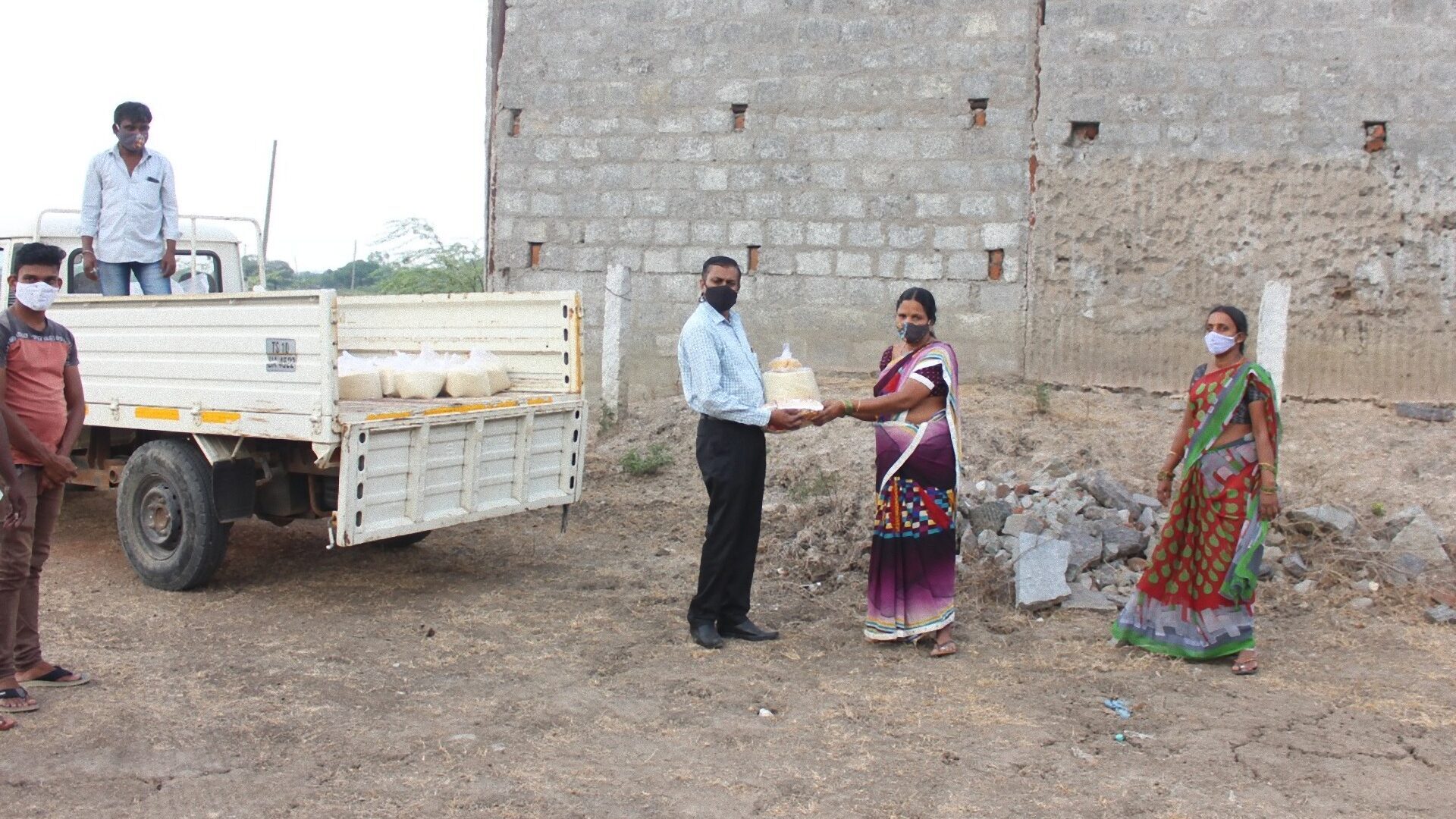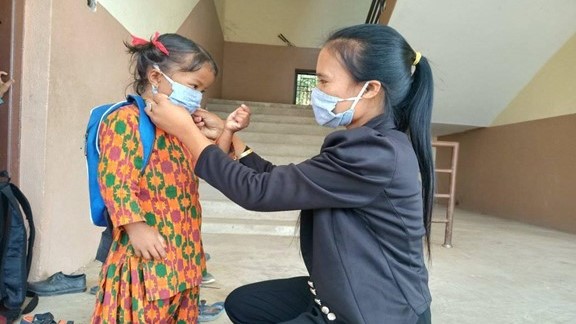The second wave of Covid-19 is hitting India with full force. The Indian health system is overburdened and not all patients are receiving medical assistance. To support families in this humanitarian crisis, Usthi is seeking emergency aid donations.
After the first wave of Covid-19 in late summer 2020, the situation in India seemed to have stabilised. Within a few weeks, however, there has been a rapid increase in the number of cases. In recent days, India has recorded more than 300,000 new infections per day. The Indian health system is overburdened and in many places it is no longer possible to treat new patients. There is a lack of oxygen, which is urgently needed for ventilation. Fortunately, the first oxygen supplies are currently arriving from abroad. But these will probably not be enough. News services around the world are showing shocking pictures of patients who have been turned away. Many of them die while waiting for a hospital bed.
Due to the current crisis, many day labourers are once again losing their livelihoods for themselves and their children. In addition, many families suddenly lose their income due to the death of the breadwinner. Without support, they can no longer feed themselves and their families. Indian newspapers report of parents who take their own lives and those of their children because they no longer see a way out. To support families in need, our partner organisation in Hyderabad started distributing food parcels again on 19th April 2021. The packages secure supplies for a family for about a week. With only CHF 14, a family can be provided with food. Usthi has set itself the goal of enabling the distribution of a further 2,000 food parcels.
Poverty-stricken families are also particularly exposed to the risk of becoming infected, as they cannot afford protective material or contacts are unavoidable at work. In addition, access to the vaccine is more difficult. People have to queue for several hours outside public hospitals to get vaccinated. This is not possible for physically fragile people. Day labourers who still have a job cannot allow themselves to be away from work for long periods of time, and single mothers cannot leave their young children alone. Poorer families cannot afford the more easily accessible vaccination in a private clinic. Our partner organisation, in cooperation with private clinics, now wants to make vaccination possible for 1,000 people. With only CHF 20, a person affected by poverty will have access to the potentially life-saving vaccination.
Usthi is asking for donations to help in the current crisis. Every contribution is of great importance to those affected. Thank you for your solidarity!



